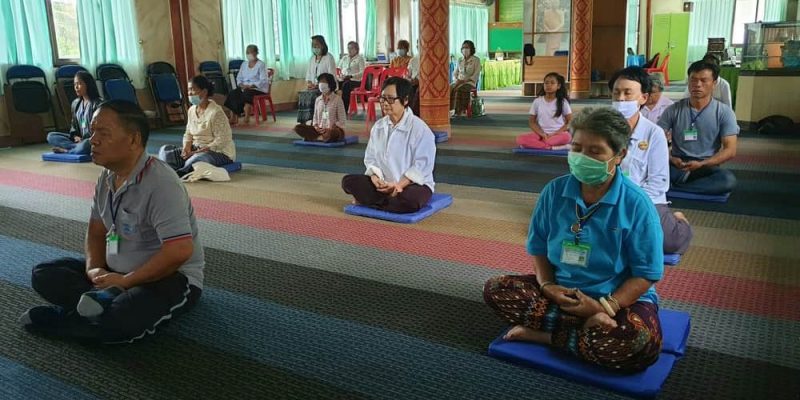We explain what self-knowledge is, its different levels and its relationship with self-esteem. Also, tips to improve it.

What is self-knowledge?
In psychology and other disciplines, it is called self-knowledge, self-awareness or self-knowledge. set of knowledge that a person acquires about themselves throughout their life as a consequence of their lived experiences and introspective reflection, that is, internal evaluation.
This particular type of knowledge, which deals with who we are and how we really are, is key in the development of healthy emotionality, as it has an obvious impact on other mental aspects such as self-esteem, conflict resolution and self-acceptance.
The practice of self-knowledge It is considered a symptom of maturity and emotional responsibility in the individual, and one of the basic principles to face one's own emotional life in a less turbulent and painful way.
Self-knowledge occurs at different levels, from the most basic ones that have to do with the perception of one's own existence and one's own desires, to the most elaborate one, which investigates one's own personality and one's own moral and spiritual values.
However, advancing in this self-discovery is always challenging, given that by being “judge and part” of an evaluation of ourselves, it is necessary to acquire a degree of detachment and objectivity with respect to one's own behavior, that is, to look at ourselves as if we were a third. Many have called this “finding yourself.”
Many thinkers and philosophers have postulated the need to develop robust knowledge about oneself, not only to be happy, but also to be able to undertake any type of spiritual path or valid reflection on our experience of the world.
In fact, according to Greco-Latin tradition, the phrase “know thyself” (gnóthi seauton) was inscribed in the temple of Apollo in Delphi, where the Oracle provided divination and intermediation services with the God.
See also: Dimensions of the human being
Self-knowledge and self-esteem
The benefits of self-knowledge are usually associated with lucidity, self-control and wisdom, but in terms of personal growth they also affect an essential component of the psyche: self-esteem. This is because Self-appraisal cannot occur without self-acceptance first occurring ; and for the latter, self-knowledge is logically essential.
To love ourselves it is necessary to know ourselves first, to be able to understand how we are, what our reactions and our desires are, and then, gradually, accept them, not judge them more severely than they deserve, and thus be able to make peace with ourselves. There is no other way to value who we are and to know that, although we are not perfect, we also have very positive and outstanding sides.
Tips to improve self-knowledge

Some exercises and practices that can serve to develop and strengthen self-knowledge are the following:
- Keep a diary or personal log. In it you will write down what happens to you, but above all your reactions, thoughts and sensations, so that you can review them later, with a cool head, and find patterns, recurrences and elements that define you but that, in the heat of life, daily, you cannot perceive.
- Practice meditation or mindfulness. These types of ancient practices seek to calm the conscious mind and allow deep contents to emerge. The task is to learn to be impartial spectators of who we are and what has happened to us.
- Attend psychotherapy. A season of analysis in a psychotherapeutic school will lead us, through different methods, to face ourselves, thanks to dialogue with the therapist. This is a safe space and our way to face certain things.
Continue with: Intrapersonal intelligence
References
- “Self-awareness” on Wikipedia.
- “Self-knowledge” on Wikipedia.
- “Self-knowledge: learn to know yourself better” at the Center for Psychology Studies (Spain).
- “Self-knowledge and self-esteem” by Marina Navarro Suanes in Topics for Education, Digital magazine for teaching professionals (Spain).
- “Self-Knowledge” in Stanford Encyclopedia of Philosophy.





